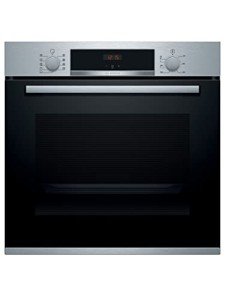5 Integrated Oven Projects That Work For Any Budget
The Integrated Oven: A Comprehensive Guide
In contemporary kitchen areas, the trend towards incorporating appliances with cabinets to produce a seamless look has acquired significant traction. Among built in gas oven and hob , the integrated oven stands apart as a preferred choice for lots of homeowners and cooking enthusiasts. This article explores the advantages, features, and considerations associated with integrated ovens, along with answering commonly asked questions.
What is an Integrated Oven?
An integrated oven is a kind of built-in oven that is designed to be flush with kitchen cabinets. Unlike freestanding models, which frequently stand apart by themselves, integrated ovens are concealed or partially concealed, providing a sleek and cohesive aesthetic to the kitchen space. These ovens come in numerous styles, consisting of single, double, and steam ovens, and can be integrated with shelves and cabinets for enhanced storage.
Benefits of Integrated Ovens
Integrating an oven into your kitchen style can provide many benefits. Here are some advantages of selecting an integrated oven:
Space-saving Design:
- Perfect for smaller kitchens, integrated ovens make the most of space utilization, leaving more space for other appliances or storage.
Visual Appeal:
- The flush setup creates a structured, modern-day appearance that can raise the total atmosphere of a kitchen.
Customizability:
- Integrated ovens can typically be personalized to match kitchen cabinetry or to include distinct features such as pull-out racks.
Enhanced Functionality:
- Many integrated ovens come geared up with sophisticated cooking technology, such as clever programs and convection heating, enhancing cooking outcomes.
Increased Property Value:
- An integrated oven can boost the value of a home, appealing to possible buyers who are interested in modern-day, well-equipped cooking areas.
Choosing the Right Integrated Oven
When selecting an integrated oven, different aspects need to be thought about to guarantee that the model fits your cooking requirements and kitchen design. Below are some crucial considerations:
Size and Capacity:
- Check the measurements of your kitchen area. Requirement sizes typically range from 60cm to 90cm in width, with capabilities differing based on the number of dishes you normally prepare.
Type of Oven:
- Decide in between conventional, convection, and steam ovens. Convection ovens are popular for their even heat circulation, while steam ovens keep wetness for better-flavored dishes.
Features:
- Look for functions that suit your cooking design. Some performances to think about consist of:
- Self-cleaning alternatives
- Smart technology integration
- Numerous cooking modes
- Safety functions
Energy Efficiency:
- Opt for energy-efficient models that consume less electrical energy while offering high performance.
Budget plan:
- Integrated ovens are available in numerous cost varieties. Determine your budget plan while considering the longevity and resilience of the device.
Feature
Suggested Model
Explanation
Self-Cleaning Function
Yes
Conserves time and effort preserving cleanliness
Convection Cooking
Yes
Improves heat distribution for even cooking
Smart Technology
Optional
Permits control from mobile phones or voice assistant
Multiple Cooking Modes
Yes
Flexibility in cooking various meals
Energy Rating
A/A+
Ensures lower energy usage
Setup and Maintenance of Integrated Ovens
Appropriate installation and maintenance are essential for optimum oven performance. Here are some actions to consider:
Installation Steps
- Preparation: Ensure you have all the necessary tools and products before starting the installation.
- Measure the Custom Space: Confirm the fit of the oven versus the kitchen cabinetry.
- Connect to Power Supply: Consult an electrical expert for safe electrical connections.
- Leveling: Ensure the oven is level to avoid cooking inconsistencies.
- Attach Cabinet Panels: If needed, attach decorative panels for a customized appearance.
Upkeep Tips
- Routine Cleaning: Frequent cleansing prevents food buildup and makes sure the oven runs effectively.
- Look for Damage: Inspect the door seals and interior for signs of damage regularly.
- Service Regularly: Schedule professional servicing to preserve effectiveness and performance levels.
- Follow Operating Instructions: Always follow maker guidelines for operation and upkeep.
Frequently Asked Questions (FAQs)
What is the difference between a built-in oven and an integrated oven?
While both types are designed to suit cabinetry, built-in ovens can stand apart slightly, while integrated ovens sit flush with surrounding cabinets.
Are integrated ovens more expensive than traditional ovens?
Generally, integrated ovens can be more expensive due to the design and features that accommodate a smooth build into the kitchen.
Can I replace my existing oven with an integrated oven?
Yes, however guarantee to think about the size and any adjustments needed for your cabinetry and kitchen layout.
For how long do integrated ovens normally last?
With appropriate upkeep, integrated ovens can last anywhere from 10 to 15 years or longer.
Do integrated ovens need unique installation?
Integrated ovens often require professional installation to guarantee they are fitted properly with proper connections and security measures.
Integrated ovens offer a sophisticated and efficient solution for contemporary cooking areas, boosting visual appeal while offering sophisticated cooking abilities. By carefully examining functions, installation, and upkeep, house owners can select an integrated oven that best fits their cooking needs and style choices. With the many designs and types offered, anyone can accomplish a practical area that complements their cooking way of life, making the integrated oven an outstanding investment for any home.
